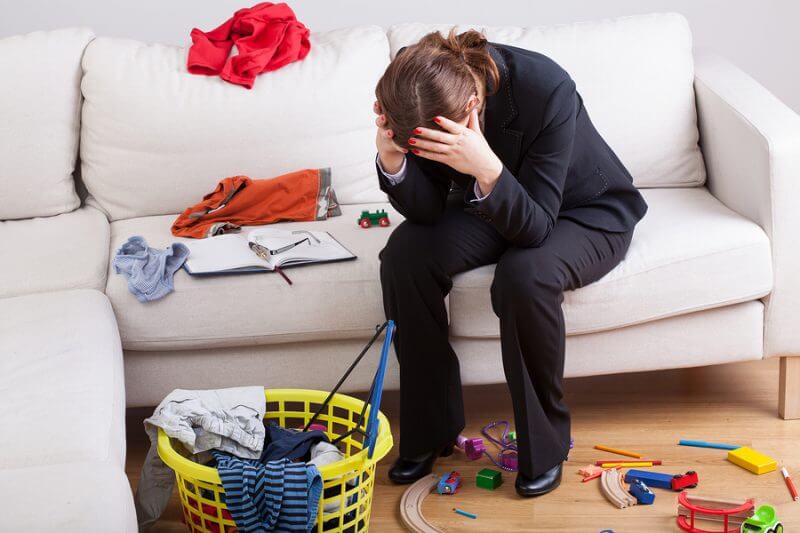
Bone Tired: Autism and Parental Fatigue
One of my most popular Facebook posts this month was about University of Regina’s Sarah Elizabeth Ivens’ thesis about parental fatigue entitled Fatigue in parents of children with Autism Spectrum Disorders: The role of parental and child factors for mothers and fathers.
While most parents of newborn children have experienced some level of fatigue, many of us who have children on the spectrum live our lives with a deep sense of exhaustion well past the first few years. On top of all the other “regular parenting” challenges, there are often sleep disorders, special dietary needs, and a level of daily long term help that our children need. While most parents hit certain age-milestones that lesson their loads somewhat (like potty training, self-feeding, dressing etc…), for many parents with kids with ASD, this kind of hands-on parenting can continue well into the teens – or forever.
Fatigue is not the same as being tired
Ms. Ivens stated, “Fatigue is a sense of exhaustion that cannot be resolved by getting rest. It’s not just being tired. If you’re tired, then you can go to bed early, sleep in and the next day you’re feeling better. That’s not the case with fatigue.”
In the study, fatigue is distinguished by three factors:
- Unlike tiredness, fatigue does not seem to be relieved by rest.
- Fatigue is always perceived as a negative experience, while tiredness may be perceived as positive following a satisfying activity.
- Although fatigue is related to depression, fatigue questions assessed exhaustion and energy while the depression questions are focused on mood and ahedonia (the inability to feel pleasure).
Ms. Ivens is the first person to study fatigue in parents who have children with ASD over the age of 5. ASD children tend to have poor sleep patterns so parents are still up in the night with them for years after early childhood. Fatigue has a big impact on well-being and the ability to parent.
How does fatigue impact parents with children who have autism?
Fatigue not only impacts the parents health in terms of their own cognitive functioning, but it also impedes their ability to cope. Exhaustion can cause impaired functioning, forgetfulness, and reduced patience to such a degree that even normal activities can feel like overwhelming tasks. As Ms. Ivans states in her paper:
One possible reason for this is that parents experiencing greater levels of fatigue may perceive their children’s behaviour as more challenging (Cooklin et al.,2012). This could potentially lead to a feedback loop of problematic behaviour and outcomes as parents are less well-equipped to deal with children’s problematic behaviour.
Raising a child requires the ability to balance multiple roles, the flexibility to adapt to the child’s changing needs, and the energy to effectively parent and respond to needs. The reduced mental and physical functioning that is a component of fatigue can make these behaviours more challenging…In sum, parents experiencing higher levels of fatigue find parenting less rewarding and more challenging than parents who are less fatigued.
What can you do to help yourself if you are experiencing fatigue?
ASD has been clinically identified as one of the most stressful of all the developmental disorders. With food disorders, speech disorders, and high co-morbidity levels with other conditions such as seizure disorders, it’s often a life-long process to help your children become as independent and fully realized as possible. While it can be incredibly rewarding as we all know, it is important to recognize when you need some respite from the extra challenges.
Get help: try and find a support system that works for you. This includes other family members, and any or all government support programs.
Take a break: once you have some support, try and take a few hours – or even a few days – to yourself. It’s amazing how much difference a day makes.
Do something just for you: while we all need sleep, feeding your own personal interests and life joys is important too. Join a choir, take a painting class, or join a gym. Making time for your own enjoyments is essential.
“It’s important to understand that these parents have these challenges and these impacts from what they’re navigating,” Ms. Ivens said. “They need support to fulfil that role to the best of their ability.”
For further reading, have a look at, Optimistic Parenting, and Autism in Family: Caring and Coping Together.
Editorial Policy: Autism Awareness Centre believes that education is the key to success in assisting individuals who have autism and related disorders. Autism Awareness Centre’s mission is to ensure our extensive autism resource selection features the newest titles available in North America. Note that the information contained on this web site should not be used as a substitute for medical care and advice.
